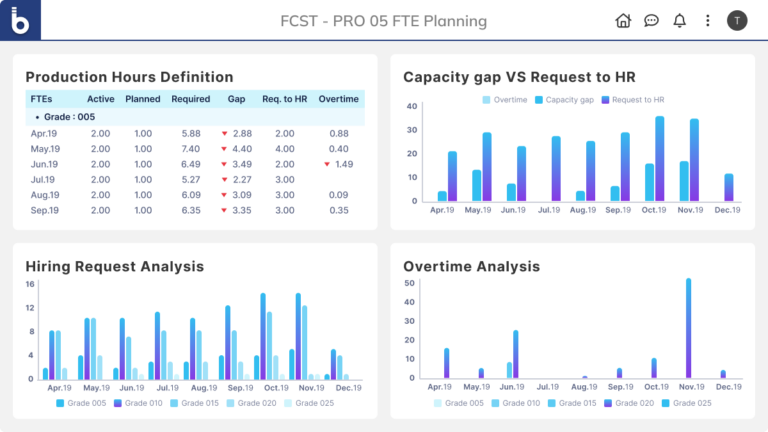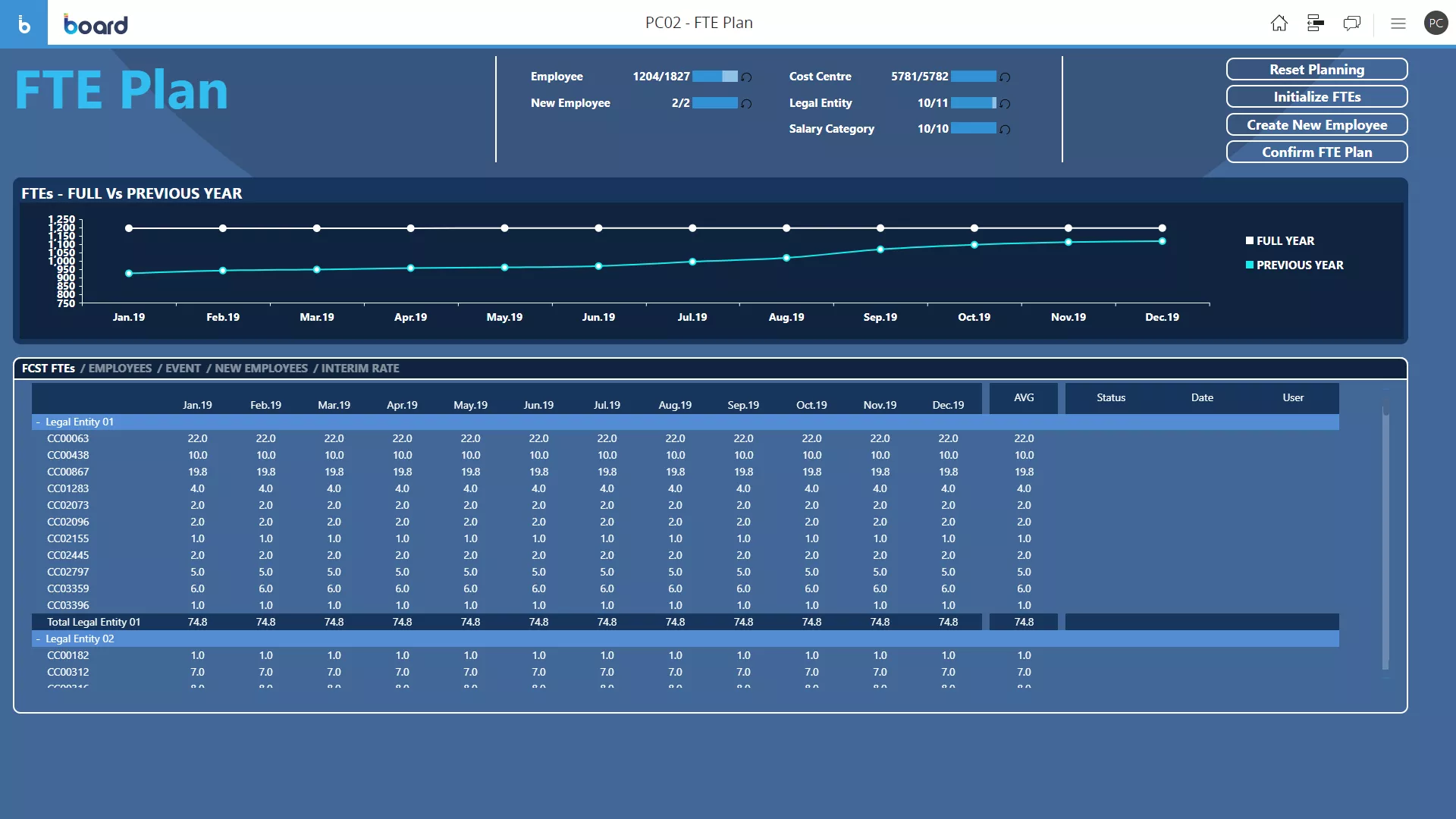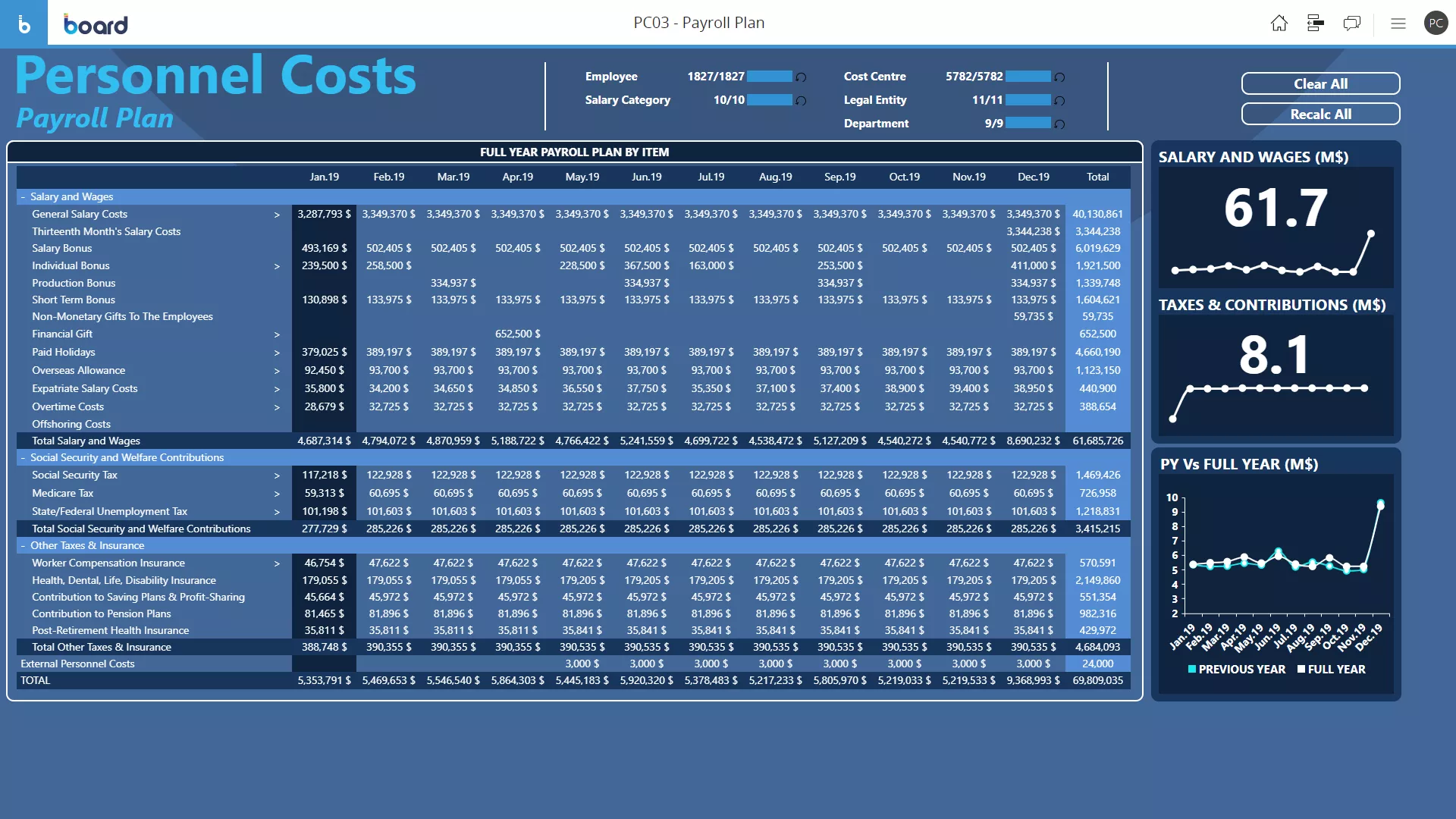


Distribution & Wholesales
Transformed Staffing Forecast and Controlling Processes at HOLTER Group
This website will offer limited functionality in this browser. We only support the recent versions of major browsers like Chrome, Firefox, Safari, and Edge.
Effectively align your human capital to strategic, operational, and financial goals.


Workforce planning is a mission-critical process, aligning the expectations of the organization with the capacity and needs of its workforce to ensure the achievement of strategic corporate objectives.
The Board Enterprise Planning Platform supports the entire workforce planning process, consolidating personnel data from all corporate departments to help you plan smarter and transform decision-making to take full control of performance.
Get rid of disconnected multi-point solutions, taking advantage of one centralized platform which integrates data from multiple sources, such as transactional and legacy systems, ensuring one version of the truth for all planning activities.

Accomplish long term workforce planning, acknowledging the impact of value creation objectives defined in the corporate strategic planning process on headcount and HR
Simulate different scenarios in terms of workforce metrics and KPIs, connecting strategic workforce planning with different organizational charts
Conduct mid-short term planning (i.e. budgeting and quarterly rolling forecasts) in terms of headcount and HR expenditure such as salary, variable remuneration, benefits, and social security costs. Acknowledge HR requirements generated by the operational planning activities of other business functions such as sales and marketing, supply chain, and R&D

Accomplish estimates for shorter-term workforce demands (up to three months out) based on various demand drivers which are distinctive for each industry (also known as “capacity forecasting”)
Take advantage of business modeling capabilities to define industrial techniques, capturing granular goal times for each process, task, and activity
Set up the process which aligns workforce demand coming from strategic & operational workforce planning and labor forecasting (i.e. number of headcounts and FTEs, fixed gross remuneration, bonus, benefits and social security costs) with inputs from industrial labor standards, labor scheduling, and personnel attendance / leave data
Conduct gap analyses between current and past data or actual and target data contained in your workforce plan, within a multi-dimensional environment and dissecting your results in terms of headcounts, full company cost per headcount, gross/net salary per headcount, benefits per headcount and social security costs per headcount



Distribution & Wholesales
Transformed Staffing Forecast and Controlling Processes at HOLTER Group



Energy & Utilities, Telecommunications
Integrated group planning & control at SPL TELE



Transportation & Logistics
Efficient Reporting, Analysis, and Planning at Flughafen Berlin Brandenburg
All our planning solutions converge on the Board Enterprise Planning Platform to help you make confident, aligned decisions. They transform your planning process by accelerating time to value, driving cost effectiveness, and reducing risk.